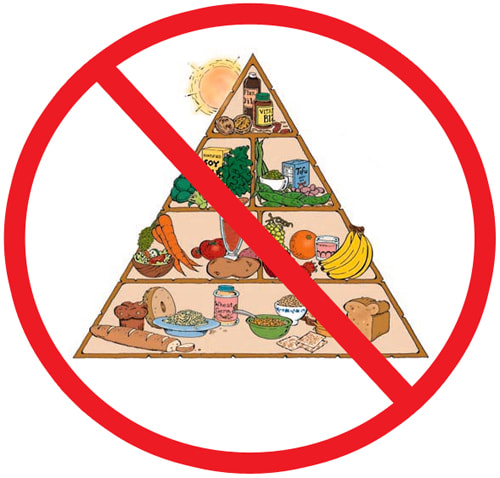Let me start by saying that I don’t care what type of diet an athlete follows. What I do care about is two things: (1) that whatever diet athletes follow, they feel strong and empowered by the food choices they make; and (2) athletes basing their food choices on misinformation and propaganda.
So, let’s start by defining exactly what type of eaters humans are meant to be. There is little ability to refute that humans are omnivores. This is stated clearly and up front on some vegetarian websites as well. Here’s one example: “Humans are classic examples of omnivores in all relevant anatomical traits. There is no basis in anatomy or physiology for the assumption that humans are pre-adapted to the vegetarian diet. For that reason, the best arguments in support of a meat-free diet remain ecological, ethical, and health concerns.”
Omnivores are opportunistic feeders. In most basic terms, we eat what we can find in order to survive. An example of an opportunistic eater is the bear. They will eat whatever they can find – from meat to fish to fresh berries and so on. Both animals do so without shame. The underpinning here is that, as humans in civilized societies we have infinite food options in front of us, we have the ability to choose how and what we eat. Animals purpose-built as carnivores or as herbivores lack this innate ability to choose.
One area of confusion is when people start beating a particular type of diet drum without really understanding the distinction between taxonomy (classifying organisms in certain categories) and diet (dietary characteristics). Members of the mammalian Order Carnivora may or may not be exclusive meat eaters. Those which eat only meat are carnivores. Dietary adaptations are not limited by a simple dichotomy between herbivores (strict vegetarians) and carnivores (strict meat-eaters), but include frugivores (predominantly fruit), gramnivores (nuts, seeds, etc.), folivores (leaves), insectivores (carnivore-insects and small vertebrates), and more. It is also important to remember that the relation between the form (anatomy/physiology) and function (behavior) is not always one-to-one. Individual anatomical structures can serve one or more functions and similar functions can be served by several forms. In other words, there are not many hard-and-fast biological rules.
One lens into the irresponsibility of how some people justify certain dietary decisions is those who beat the frugivore and vegetarian drums while pointing to our closest relatives and say, “See, primates and great apes don’t eat meat. Look out powerful they are just subsisting on plants. Humans should turn their noses up at meat, too.” Well, what a lot of people seem to either not know or forget is that we are most genetically similar to chimpanzees. And, guess what? Chimps are omnivores. They hunt, kill and eat any animals they can. In other words, they are opportunistic when the chance to eat meat presents itself.
With growing interest, I’ve loosely followed the careers of some athletes in various sports who openly discuss their dietary changes. One notable example from a few years back is Arian Foster, a stellar NFL running back who started his career with the Houston Texans, and then ended it forgettably with the Miami Dolphins. Foster was arguably the most talented runner in the game who could do it all at the height of his career. A few years back, in an interview before the 2014 season, he stated he was a newly-converted vegan. While not fat or overweight, he said he had slimmed down a little bit, and felt both faster and quicker on the football field. And it showed as that football season began. He lit up the field. However, in the latter half of the season, his body started breaking down. But, football players get injured; it’s part of the game. As the 2015 season loomed, Foster tore his groin and required surgery, consequently missing the first few games of the season. Then, after a handful of games, Foster ruptured his Achilles tendon in a non-contact capacity. When the ball was hiked, he took one step, then another and his heel visibly popped and dropped to the turf. Foster collapsed to the ground, first looking like he had simply slipped on the grass. After all, no one had even come close to touching him. When he stayed down, the gravity of the situation started dawning on everyone. He immediately went on IR (injured reserve) for the rest of this season. It is widely wondered if his pro career was indeed over. He rehabbed and made enough progress so that the Miami Dolphins picked him up (the Texans had released him because he had become a financial liability). His contract was for a single year and heavily incentive-laden. In the pre-season, he was excited to earn his spot as the starting running back for the team; barely had the season begun and Foster did an about face and summarily retired.
This is just one example and, certainly, is not meant to intone that if you don’t eat meat that your body will unequivocally fall apart. However, it does raise this question. If we in fact restrict the types of foods we eat (food allergies aside and, of course, ignoring highly processed junk), are we then robbing the body of important nutrients that it is hard-wired to need in order to function optimally? Protein is not protein, so while plant-based protein is wonderful and does the body good, it’s made of different stuff than meat-based protein. And visa versa. The Paleo diet seems to rely too heavily on proteins and other types of dietary restrictions, thinking of humans more as carnivores than true omnivores. I've also seen a fairly new movement of people who only eat meat and, literally, nothing else.
I’ll admit, that we are sentient beings with morals, and consciences can make it more ethically challenging to make certain food choices. Videos of slaughterhouse cruelty tug at our heart strings (mine included) and we wonder “at what cost?” But, how many of us have it in us to hunt what we kill? I know I do not. At the end of the day, I choose to eat various types of meat because I know I feel better when I do and my body is meant to consume and process meat. I also tend to favor red meat over white meat. When I eat white meat, my system takes a lot more water and energy to break it down than it does with red meat. I don't avoid white meant, but when give the choice I almost always opt for red meat.
The operative word here is “choice,” and it brings us full circle. We humans are omnivores. We are purpose-built to eat anything and everything because from our nomadic roots we had to adapt to nature’s smorgasbord in order to survive. Despite settling down and becoming sedentary civilizations, our hard-wired dietary necessities have not changed. But, our morals around food have -- because food consumption is so much less about survival and more about choice.
Please, choose the diet that you feel does your body the most good and that allows you to best sleep at night. But, at the same time, please do not beat your drum loudly as if yours is the only viable option. It's not. If you revile others for choosing differently than you do, then you need to look in the mirror and ask yourself what the hell you're doing. If you feel your choice of diet puts you on some sort of moral high ground, you need to seriously rethink things.
And, if you find yourself breaking down or getting sick or injured, and you are restricting your diet in certain ways, it may make sense to rethink your choices. At the end of the day, food is nothing more than fuel. And, if the body is not receiving the right mix of fuel or enough of it, then like any machine it will break down. Back to veganism -- I have a friend who has chosen this diet for herself. Great. However, like Foster of the NFL, since she switched from being vegetarian to vegan, she looks unhealthy. Her eyes are sunked and she has dark bags beneath them. She talks about joint pain, which in the past was never part of our conversations. It seems like every third time I see her, she's battling a cold or some niggling malady. Is all this based on the switch to a vegan diet? I don't know; I do find the coincidental timing uncanny.
What I’m advocating here is thoughtful choice that leads to fueling your body in the way it needs in order to perform optimally – not just in races, but also day in and day out. Endurance athletes are machines. Food is the fuel that enables the machines to run. If the machines do not receive the right fuel, the machines break down. Like putting unleaded gasoline in a diesel fuel vehicle. Once that gasoline starts cycling through the motor, the machine locks up and shuts down. It breaks.
Don't allow your machine to break.
Happy Training,
Coach Nate


 RSS Feed
RSS Feed